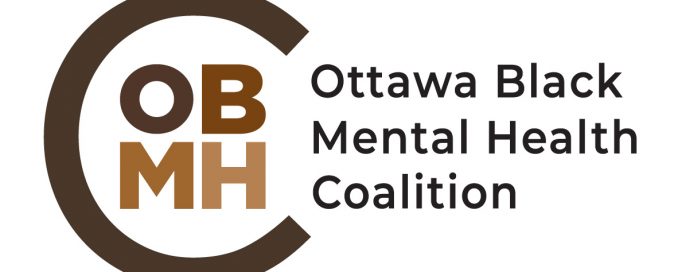Ottawa Black Mental Health Coalition: Supporting ACB Population’s Mental Health
April 30, 2021By Papa Ladjiké Diouf
The African Caribbean Black (ACB) population in Ottawa and across the country had suffered and continues to suffer from psychological, emotional and social injuries resulting directly from policies of inequality, racism, segregation and oppression, as was documented by the United Nations Expert Working Group on People of African Descent in 2017.
It’s in this context that the Ottawa Black Mental Health Coalition (OBMHC) was created to help change the inequities of access and quality in the system of health care, especially in mental health. ACB professionals and organizations decided to raise their voices and contribute by their expertise in the field of mental health to reduce inequities concerning ACB clients in the system.
In the wake of the inequalities created and perpetuated by systematic racism against the ACB population, it was time to engage in difficult but necessary conversations and implement action plans to promote the mental health of ACB populations sustainably in Ottawa. It reflected that organizations like ours and their members are reiterating their commitment to changes in access and quality of mental health services, justice, and other sectors that continue to marginalize ACB individuals and families and create unwelcoming spaces and unsealed outcomes for them. Therefore, we have come together to make concrete changes that will affect the system.
The events of the past year must become a defining moment for the health and well-being of ACB people. The pandemic and its disproportionate impact on ACB people and communities exposed the price paid by ACB communities from a discriminatory system that generates decision-making and inertia that exacerbates inequities. We need a clear action plan from all those who can contribute to systemic change. For years, ACB leaders have described the path to follow; they must now respond to their call for concrete change. We must commit immediately to listening to ACB leaders, supporting the path forward for mental health care, social services, and other systems, mobilizing to demand and take concrete action to make concrete changes.
The OBMHC had received COVID funds from the city of Ottawa to help organizations better assist their clients by offering more clinical activities.
The OBMHC has helped to create an ACB portal in the Counseling Connect program which is a mental health project in Ontario. Around 12 ACB clinicians offer clinical support to ACB clients on a daily basis. Since May 2020, over 6200 clients were booked with the Counseling Connect portal and the counsellors serve clients from 2 to 95 years old in different problematics related to mental health. The ACB portal in Counselling Connect provides quick access to a free phone or video counselling session, available in English and French. This service is for everyone including children, youth, adults and families in Ottawa and the surrounding area.
The client can choose a convenient date and time as there are no waiting lists.
Clients can be assisted with different mental health problems including sleep issues, anxiety and depression, bullying, behavioral issues, separation, relationships, grief and loss, drugs and alcohol, gender and sexuality, adjusting to life in Canada, problem gambling, isolation and loneliness.
The portal is accessible for all ACB clients from 2 to 95 years old on a daily basis and it’s easy to navigate. The OBMHC also offers a bi-weekly clinical supervision to all the ACB counsellors to help them reinforce their skills in an intercultural approach. This past March, the OBMHC organized the Ottawa Black Mental Health Week (panel discussion and workshops) with more than 25 organizations working with ACB population and it was a real success.
Papa Ladjiké Diouf is Co-Lead for Ottawa Black Mental Health Coalition (OBMHC)


 In our city’s history, immigrants have always played an important role. They build our economic prosperity, diversify our culture, contribute to our social vitality.
In our city’s history, immigrants have always played an important role. They build our economic prosperity, diversify our culture, contribute to our social vitality.

